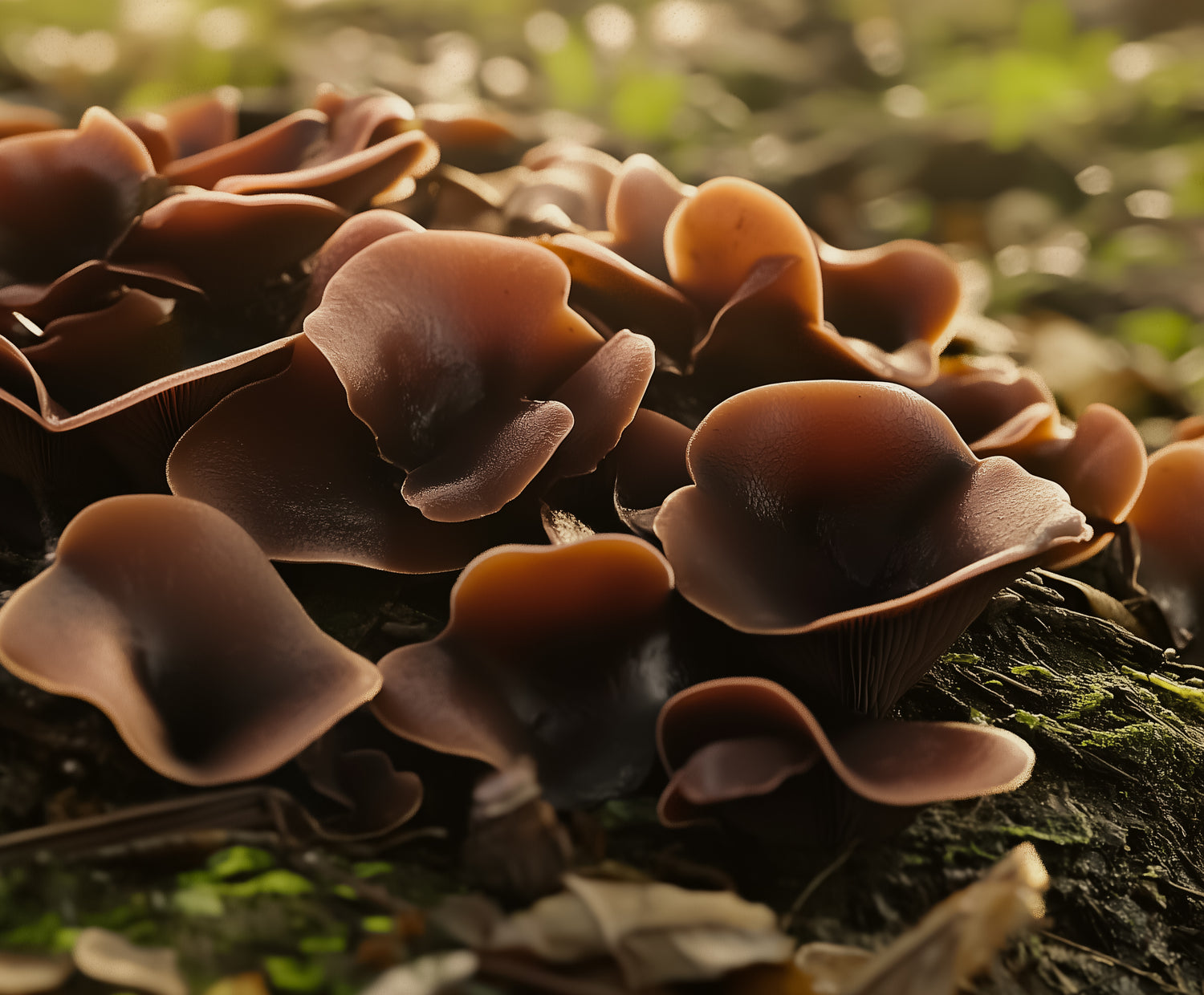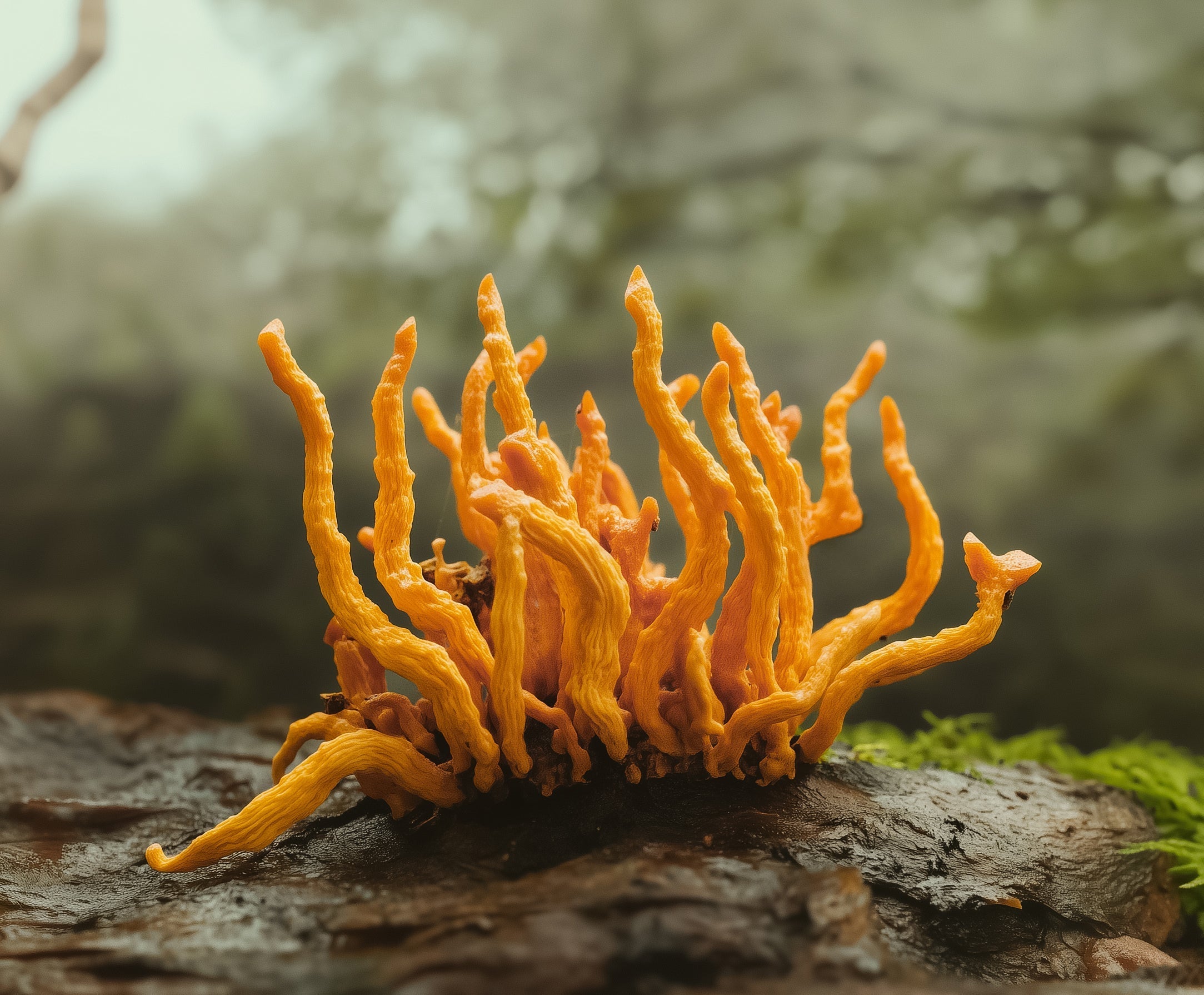Auricularia mushrooms, commonly known as wood ear or tree ear mushrooms, belong to the genus Auricularia and are prized in various culinary traditions for their unique texture and subtle flavor. These mushrooms grow on trees, typically on the wood of deciduous trees, and have been used in traditional medicine and cooking, particularly in Asian cuisines, for centuries. This article explores the health benefits, uses, and precautions associated with Auricularia mushrooms.
Health Benefits
- Rich in Nutrients: Auricularia mushrooms are a good source of essential nutrients, including B vitamins (such as B2, B3, and B5), dietary fiber, and minerals like potassium, magnesium, and phosphorus. These nutrients are vital for maintaining overall health.
- Immune System Support: These mushrooms contain bioactive compounds, such as polysaccharides, that have been shown to enhance the immune system. Polysaccharides can stimulate the production and activity of white blood cells, which are crucial for fighting infections and diseases.
- Cardiovascular Health: Auricularia mushrooms have anticoagulant properties, which can help prevent blood clotting and improve circulation. This can reduce the risk of cardiovascular diseases such as heart attacks and strokes. Additionally, their high fiber content can help lower cholesterol levels.
- Antioxidant Properties: The mushrooms are rich in antioxidants, which help neutralize harmful free radicals in the body. By reducing oxidative stress, they can help prevent chronic diseases and promote overall health.
- Anti-Inflammatory Effects: Compounds found in Auricularia mushrooms have been shown to possess anti-inflammatory properties. These can help reduce inflammation in the body, potentially benefiting those with inflammatory conditions like arthritis.
Culinary Uses
Auricularia mushrooms are valued in culinary practices for their unique texture and ability to absorb flavors. Here are some common ways they are used in cooking:
- Soups and Stews: Their chewy texture makes them a popular ingredient in soups and stews, especially in Chinese and Japanese cuisines. They add a delightful texture and absorb the flavors of the broth.
- Salads: They can be thinly sliced and added to salads for a crunchy texture. Their neutral flavor makes them versatile for various salad dressings and ingredients.
- Stir-Fries: Auricularia mushrooms can be stir-fried with vegetables, meats, and sauces, providing a pleasant texture contrast and enhancing the dish's overall flavor.
- Dim Sum and Dumplings: They are often used in the filling for dim sum and dumplings, adding texture and nutrition to these popular dishes.
Precautions
While Auricularia mushrooms are generally safe for consumption, there are some precautions to consider:
- Allergic Reactions: Some individuals may be allergic to mushrooms, including Auricularia. Symptoms of an allergic reaction can include itching, swelling, and difficulty breathing. If you experience any of these symptoms, seek medical attention immediately.
- Interactions with Medications: Due to their anticoagulant properties, Auricularia mushrooms may interact with blood-thinning medications, such as warfarin. If you are taking such medications, consult your healthcare provider before including these mushrooms in your diet.
- Proper Identification: When foraging for wild mushrooms, proper identification is crucial. Some mushrooms can be toxic, and misidentifying them can lead to serious health issues. It is advisable to obtain Auricularia mushrooms from reputable sources or consult an expert if foraging.
- Consumption in Moderation: As with any food, it is best to consume Auricularia mushrooms in moderation. Excessive intake may lead to digestive discomfort or other health issues.
Conclusion
Auricularia mushrooms are a nutritious and versatile addition to the diet, offering numerous health benefits, including immune support, cardiovascular health, and antioxidant properties. They are widely used in various culinary traditions, adding texture and flavor to a variety of dishes. However, it is essential to consume them safely and be aware of potential allergies and interactions with medications. By incorporating Auricularia mushrooms into a balanced diet, you can enjoy their health benefits and culinary appeal.






